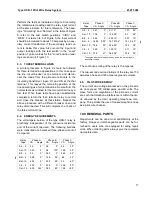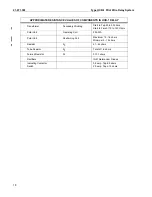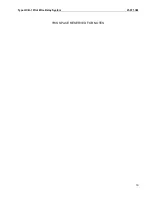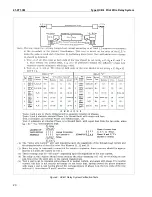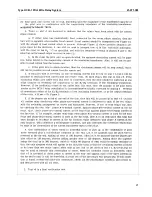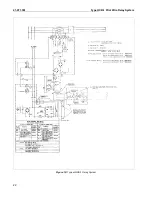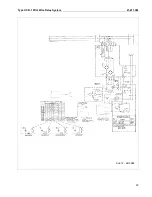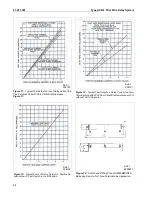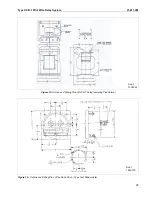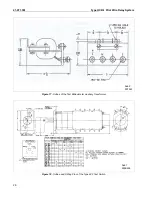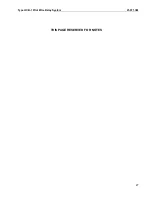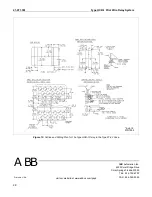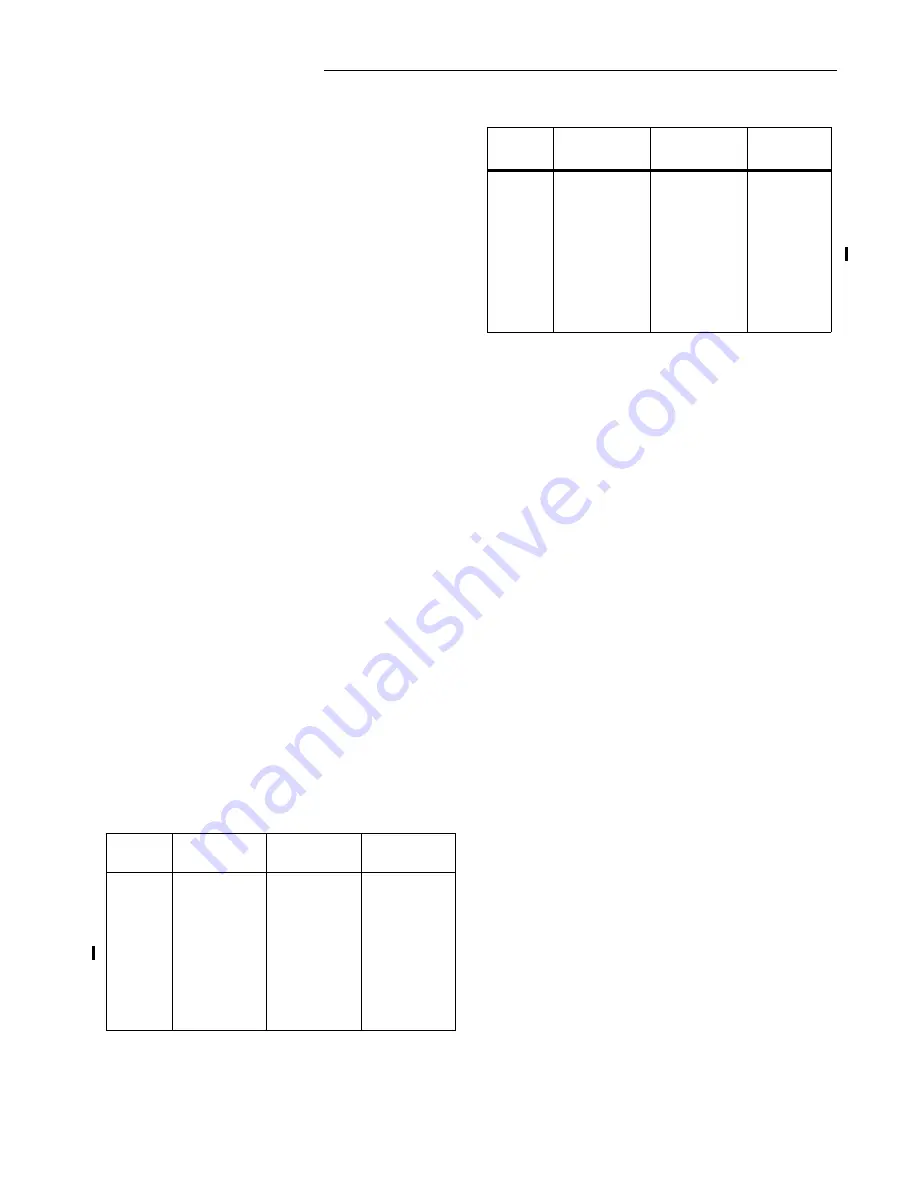
Type HCB-1 Pilot Wire Relay System
41-971.3M
17
Perform the tests as indicated in Figure 9 recording
the milliammeter readings and the relay input current
at the same instant, for future reference. The head-
ings “Circulating” and “Remote” in the table of Figure
9 refer to the test switch positions, “CIRC” and
“REM.” For tests 3 to 6 of Figure 9, the input current
should be increased to about 1.5 amperes by an aux-
iliary current transformer, if the secondary load cur-
rent is below this value. Also record the input and
output readings with the test switch in the “Local”
position. Typical values for the “Local” position read-
ings are shown in Figure 13.
9.3.
THREE TERMINAL LINES
A similar procedure to Figure 9 should be followed
for three-terminal line applications. In this case open
the line circuit breaker at one terminal, and discon-
nect the leads from the pilot-wire terminals to the
insulating transformer (open H1 and H4) at the that
terminal. This leaves the remaining position of the
line operating as a two terminal line. Now perform the
normal tests as outlined for the two terminal line sys-
tem test. When these tests have been satisfactorily
completed, return the third terminal relay to normal
and close the breaker at that station. Repeat the
above procedure with a different breaker open and
relay disconnected. This will complete the check of
the three terminal line.
9.4.
ENERGY REQUIREMENTS
The volt-ampere burden of the type HCB-1 relay is
practically independent of the pilot-wire resistance
and of the current tap used. The following burdens
were measured at a balanced three-phase current of
5 amperes:
The angles above are the degrees by which the current lags is
respective voltage.
The continuous rating of the relay is 10 amperes.
The two-second overload ratings of the relay are 150
amperes phase and 125 amperes ground currents.
9.5.
PILOT-WIRE ENERGY
The current and voltage impressed on the pilot-wire
do not exceed 100 milliamperes and 60 volts. The
wave form and magnitude of the pilot-wire current
are such that telephone interference is within the lim-
its allowed by the local operating telephone com-
pany. This permits the use of leased telephone lines
as a pilot-wire channel.
10.0 RENEWAL PARTS
Repair work can be done most satisfactorily at the
factory. However, interchangeable parts can be fur-
nished to users who are equipped for doing repair
work. When ordering parts, always give the complete
nameplate data.
Relay
Taps
Phase A
VA
Angle
Phase B
VA
Angle
Phase C
VA
Angle
A-F- 4
A-H- 10
B-F- 4
B-G- 4
B-H- 10
C-F- 4
C-H- 10
2.4
5°
3.25
0°
2.3
0°
3.98
0°
4.95
0°
2.32
0°
6.35
342°
0.6
0°
0.8
100°
0.63
0°
1.28
92°
2.35
90°
0.78
0°
3.83
80°
2.5
50°
1.28
55°
2.45
55°
.88
42°
0.3
60°
2.36
50°
1.98
185°
Relay
Taps
Phase A
VA
Angle
Phase B
VA
Angle
Phase C
VA
Angle
A-F- 4
A-H- 10
B-F- 4
B-G- 4
B-H- 10
C-F- 4
C-H- 10
2.47
0°
7.36
0°
2.45
0°
16.82
9.90°
16.8
55°
2.49
0°
31.2
41°
2.110°
12.553°
2.0915°
16.7913.5°
22.050°
1.9915°
36.038°
1.97
20°
6.7
26°
2.07
10°
15.10 4.0°
12.3
38°
2.11
15°
23.6
35°
Summary of Contents for HCB-1
Page 19: ...Type HCB 1 Pilot Wire Relay System 41 971 3M 19 THIS SPACE RESERVED FOR NOTES ...
Page 21: ...Type HCB 1 Pilot Wire Relay System 41 971 3M 21 ...
Page 22: ...41 971 3M Type HCB 1 Pilot Wire Relay System 22 Figure 10 Typical HCB 1 Relay System ...
Page 23: ...Type HCB 1 Pilot Wire Relay System 41 971 3M 23 Sub 15 4810D98 ...
Page 27: ...Type HCB 1 Pilot Wire Relay System 41 971 3M 27 THIS PAGE RESERVED FOR NOTES ...















